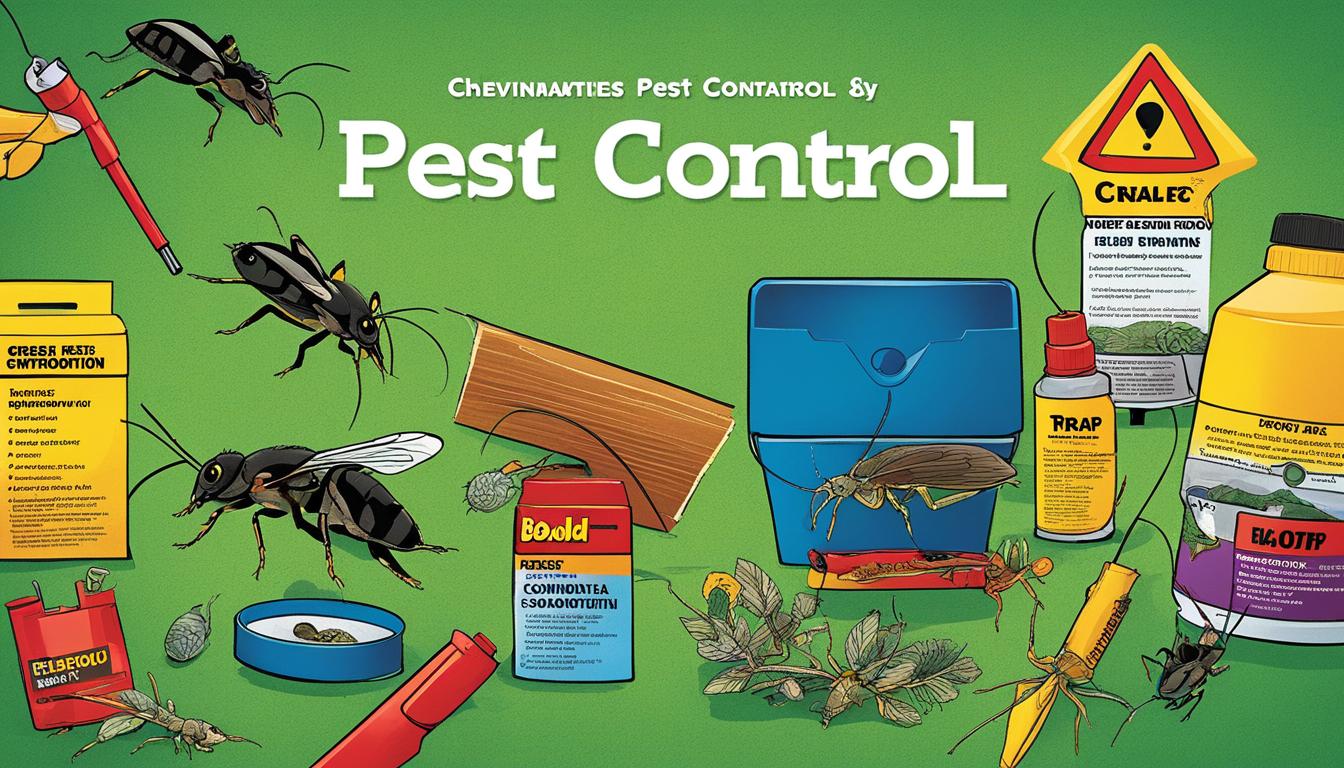The Best Guide To Pest Control
The Best Guide To Pest Control
Blog Article
How Pest Control can Save You Time, Stress, and Money.
Table of ContentsRumored Buzz on Pest ControlA Biased View of Pest ControlSome Ideas on Pest Control You Should KnowThe Single Strategy To Use For Pest ControlThe Only Guide for Pest Control
Limitations of Chemical Monitoring Be able to assess bug problems, identify if management is needed, and make appropriate referrals utilizing IPM methods. Be familiar with various methods of parasite management - their benefits and constraints.This phase discusses (IPM), an approach that utilizes understanding about insects and their, methods, nonchemical methods, and chemicals to manage bug problems. Additional info concerning IPM for specific plants is consisted of in chapters that focus on those plants. Nonchemical pest control procedures are emphasized in chapter 17, "Organic Gardening." Handling birds and creatures is covered in phase 20, "Wildlife." Handling in the backyard and garden is covered in chapter 6, "Weeds." Parasites in a yard or landscape may consist of bugs and termites, weeds,, mammals, and birds.
Numerous people hurry to draw, hoe, or spray every weed they see. Bugs and weeds, however, play a function in the. After planting a garden or establishing a lawn, the natural procedure of plant succession begins to restore and nonnative plants. A weed growing in a lawn stands for the initial stage in a sequence of occasions that, if permitted to continue, can eventually cause a woodland.
What we call "parasites" become part of an all-natural system at the workplace. A community has no bugs. Only human beings think about particular types insects when they occur where they are not wanted. We will certainly be extra successful in managing undesirable types when we recognize that these organisms adhere to foreseeable patterns that we can make use of to our advantage.
The Buzz on Pest Control
Insects susceptible to a chemical were quickly eliminated, leaving resistant ones to breed and multiply. It ended up being clear that chemicals alone would not address all parasite troubles.
An IPM plan enables some degree of parasites in the atmosphere. Bugs are a lot less likely to make it through a program that makes use of several methods of decreasing their populations. Integrated parasite monitoring was initial recommended by entomologists because insects were the first group of bugs to verify hard to take care of with chemicals alone.
A limit is the factor at which action must be taken. IPM has actually extended past bugs to management of all pest populations: weeds, condition organisms, and mammals.
Excitement About Pest Control
Management as opposed to elimination of parasites is the objective. An IPM plan begins with a careful assessment of each parasite invasion. Just then can one determine Get More Information about the proper techniques required to subdue pest tasks. The life process of the parasite, my response possible damage, natural enemies, and effects of weather condition, to name a few elements, are considered prior to a control strategy is implemented - Pest Control.
Clover expanding in a lawn might be considered as an undesirable weed, however as a legume it is synthesizing nitrogen for the dirt and the blossoms are giving nectar to honey bees and other. Tolerance for some weeds may become part of an IPM plan. may be eating the leaves of a plant, yet when they are identified as the larvae of Eastern tiger swallowtail butterflies, their damage may be endured so we can appreciate the beautiful butterfly.

The second most crucial tool in bug administration is very early intervention. Responding to problems promptly, before they have time to increase, needs a less remarkable intervention.
Rumored Buzz on Pest Control
Many risk-free, practical, nonchemical approaches of plant defense and insect management may lower or get rid of the demand to spray. Various other techniques are most advantageous when utilized with pesticides. To execute monitoring techniques appropriately and to lessen losses, gardeners should understand the kinds of bugs that strike plants and see this page comprehend pest biology.

Carrying out a dirt examination and applying only the recommended amount of fertilizer and lime maximizes the advantage to the plant while minimizing issues associated with extreme use plant food - Pest Control. Treatment the dirt with numerous inches of mulch safeguards the plant in several methods: decreasing soil water loss to evaporation, decreasing weed competition, supplying nutrients, and producing an appropriate atmosphere for earthworms and bacteria that keep the soil loose for roots and damage down organic product to launch nutrients
If mulch touches the trunk, it can create a means for voles, germs, and fungi to assault the plant. Do not use manure or garden compost that has not extensively disintegrated as a top clothing because it can motivate unfavorable parasites. Research study suggests that farming is damaging to soil structure.
How Pest Control can Save You Time, Stress, and Money.
If tilling is regarded required, take into consideration doing it in the loss when the life process of many parasites brings them near the surface area. At the surface, insects become exposed to the weather along with birds and other natural opponents. Fall tilling can also destroy pests in crop deposits. Usage disease-free and insect-free certified seeds and plants if available.
Report this page